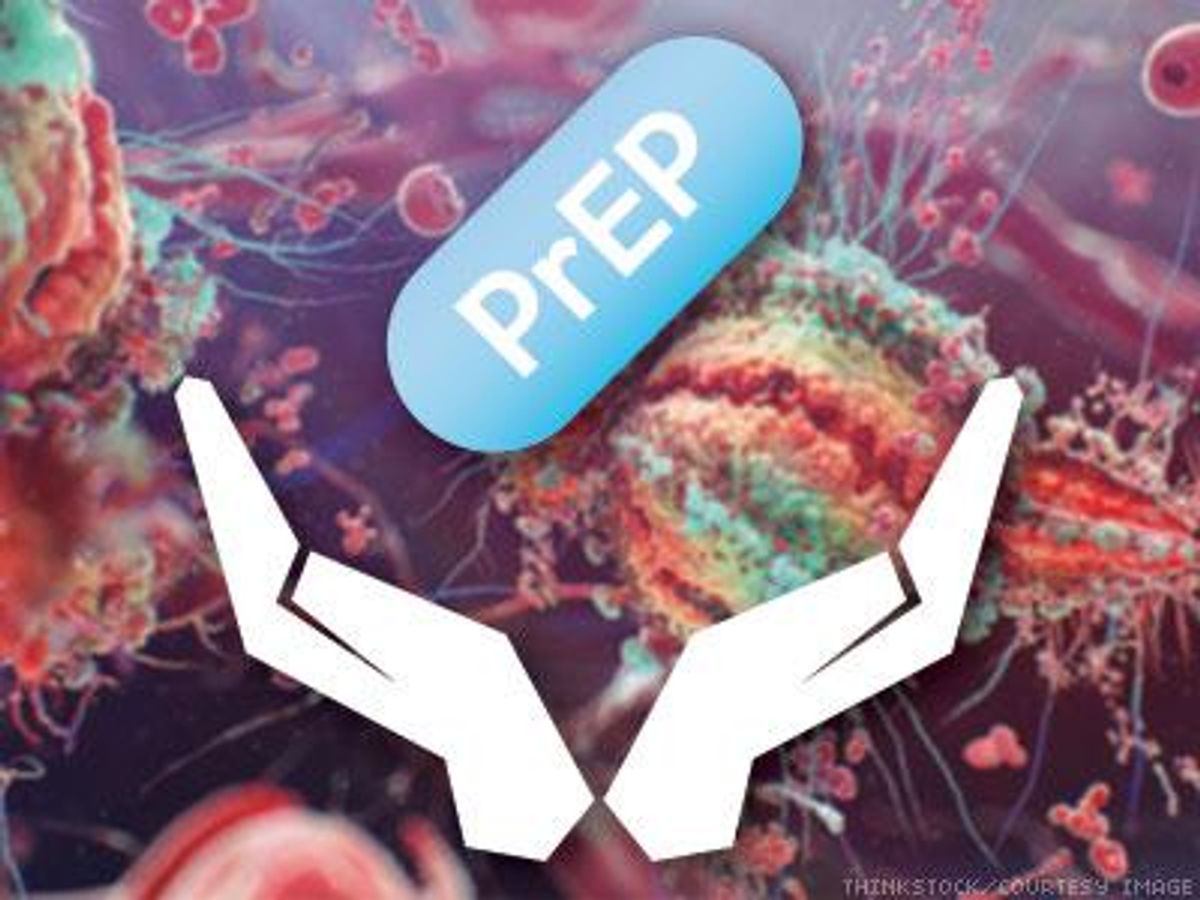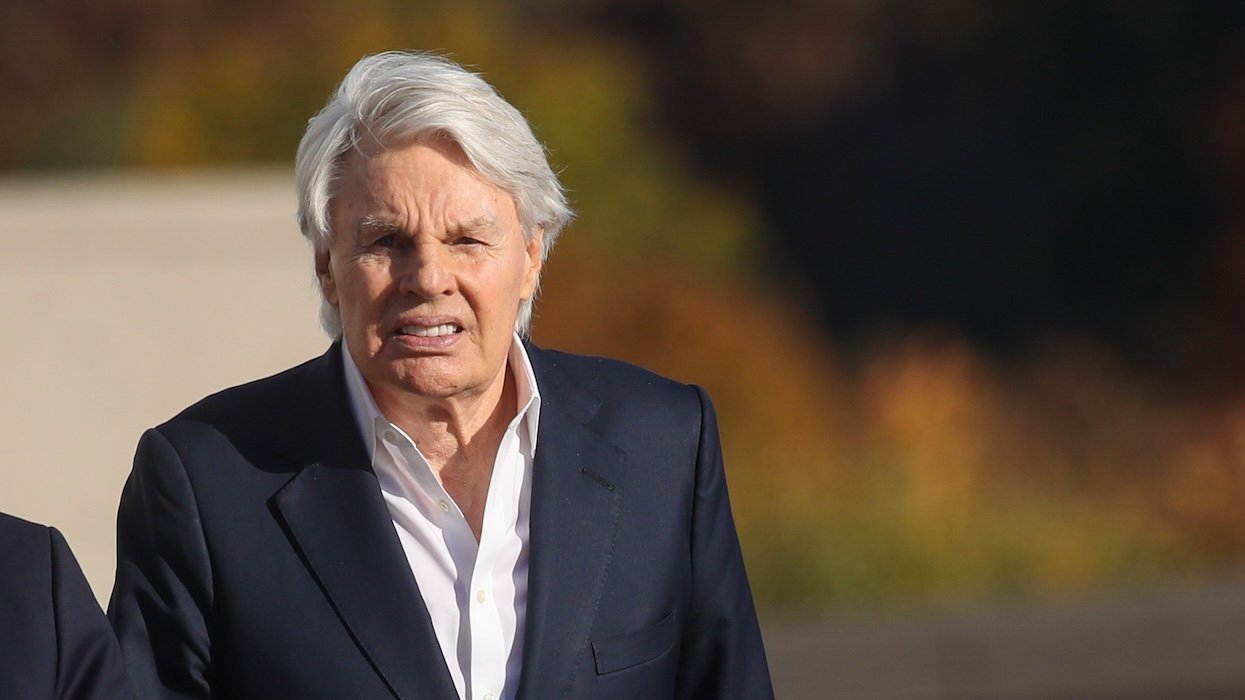A comprehensive strategy to curb the spread of HIV around the would, ideally, include pre-exposure prophylaxis, or PrEP. But activists say the entire prevention plan faces new and numerous obstacles, especially in African countries.
Chief among these are an outbreak of a "competing" infectious disease taking center stage in Africa and cuts in the U.S. federal budget that are seemingly irreversible, making the challenge of securing ever-dwindling funding particularly acute for those committed to ending AIDS worldwide.
Of course, the usual culprits of poverty, lack of infrastructure, and overwhelmed health care systems make treatment of any chronic condition more difficult. Still, activists say Ebola could slow some of the momentum for a strategy to fight HIV and AIDS, including for deployment of PrEP, in Africa.
Top international AIDS experts have even compared the recent Ebola outbreaks in Africa with the dawn of the HIV and AIDS epidemic on the continent beginning in the 1980s. "This is what it was like to respond to HIV," said William Fischer, MD, in an interview with the Center for Global Health Policy's Science Speaks blog this month, explaining why he went to the epicenter of the current Ebola outbreak in Guinea.
The National Institute of Allergy and Infectious Diseases is on the front lines in the fight against Ebola, and the director of its Division of AIDS warns that Ebola threatens to devastate the health care systems of the west African countries where outbreaks have occurred. Already, Ebola has profoundly affected the fight against HIV and all other diseases, says the expert.
"That's the danger," the director, Carl Dieffenbach, Ph.D., tells The Advocate. "It's not just that Ebola has caused the breakdown of entire health care systems in these countries. ... The entire health care infrastructure there has to be rebuilt, because it's affecting malaria, HIV, and every other kind of infectious disease. All they need now is a flu epidemic and it will be a catastrophe."
Fighting the spread of HIV in Africa is about more than just medications and treatment. It's also about combating stigma surrounding the disease as well as homophobia. Just as human rights activists have seen a marked uptick in the incidence of institutional homophobia on the African continent, so too have researchers.
"The whole Uganda thing has definitely made it more complicated," Dieffenbach says, noting the fight over criminalization of homosexuality in that country. "We have to find ways to still do our work and our research. It can get complicated."
Despite such complications, two studies are now under way in Africa designed to uncover ways to optimize PrEP's effectiveness there. One study, Dieffenbach says, focuses on the possible economic benefits of PrEP.
But findings from the other study are a good example of why a once-daily pill will be a difficult sell to Africans. "For instance, they didn't like the stigma of having bottles of pills making noise in their purses," says Dieffenbach, noting that the stigma was not about being LGBT, but about being seen as sick or having HIV. Couples, who were presumably unconcerned about the stigma of using pills on a regular basis, had better results as a group than, for example, transgender women, who were less adherent to the drug regimen.
The drug used for PrEP is most effective if taken daily. Studies have shown that Truvada, the brand-name antiretroviral that is so far the only drug approved for PrEP, is 99 percent effective in preventing HIV transmission if taken daily as directed, 96 percent if only taken four days a week, and up to 70 percent at two days a week -- which is roughly the same efficacy as condoms.
While contemplating the mix of tools to fight the spread of HIV, health care experts, including workers on the ground in Africa, say PrEP is a promising one they hope to make readily available to all those at risk of contracting HIV.
"Research and development has produced a valuable range of medicines, diagnostics, and devices to prevent and treat HIV which have to be made more widely available," says a statement issued by Luiz Loures, deputy executive director of the U.N.'s Joint Programme on AIDS. "However, funding is declining at a time when services need to be expanded and better treatments and additional HIV prevention options are needed."
And while PrEP is a promising new weapon in the fight against HIV, UNAIDS stresses it should be considered just one piece of equipment available in that battle, along with techniques proven effective in developing nations, including "voluntary medical adult male circumcision" and female condoms, which have recently both seen substantial funding decreases. The Geneva-based UNAIDS contends that those tried-and-true options may ultimately be more effective in stemming the tide of new HIV infections in Africa and other developing locales due to greater accessibility and lower costs than PrEP.
Even with exciting new developments, the international truth remains that there is no obstacle greater than money when it comes to getting PrEP into the hands of the people who need it most -- a truth that resonates even in affluent nations like the U.S.
And it seems the partisan gridlock in Washington, D.C., is having a ripple effect on international efforts to combat HIV and AIDS in the developing world.
UNAIDS reports that last year's funding for vaccine research and development -- including for implementing PrEP regimens in the developing world -- plummeted more than ever before. The culprit, says the organization, is the so-called sequester of the federal budget in the United States.
That harsh, across-the-board $1.2-trillion-over-10-years spending cut began last year, and included sequestration of monies that had been facilitating research and development of new treatments, including the deployment of PrEP in Africa. Prior to the sequester, funding for AIDS research and development had seen a massive increase spearheaded by the administration of George W. Bush.
By contrast, funding for treatment and prevention of HIV and AIDS in Africa has stagnated under President Obama -- arguably as a result of political polarization between the White House and a largely obstinate Congress. The sequester has effectively blocked several sources of funding for pioneering medicines, including PrEP, according to UNAIDS. It also reports reduced bilateral funding from European governments and a lack of large efficacy trials in the latter part of the year as contributing factors to the decline in funding. There has also been a drop in support from past philanthropic funders, UNAIDS reports.
The decrease in funding comes at a time when, arguably, the money is needed more than ever. With sufficient resources, Loures says, it may be possible to end AIDS by using tools like PrEP and the full spectrum of other advances developed in recent years.
"Now is not the time to pull back from science," he says. "But rather to push forward toward ending the AIDS epidemic."
The concern over declining U.S. funds to fight HIV and AIDS isn't limited to UNAIDS. A New York City-based organization formerly known as the AIDS Vaccine Advocacy Coalition, which now goes by AVAC, has fellows and partners in developing countries around the world, and has been aggressively supporting research aimed squarely at ending AIDS for nearly 20 years. AVAC is definite in its belief that there couldn't be a worse time to ease off on funding, including for tools like PrEP.
"There is a growing consensus that we can end the AIDS epidemic if we develop and deploy the right tools and reach those most at risk," AVAC executive director Mitchell Warren tells The Advocate. "But we won't be able to make a sustained impact on the cycle of new infections without development and aggressive rollout of new prevention options -- voluntary medical male circumcision, PrEP, treatment as prevention, microbicides, and eventually vaccines. We need sustained and flexible funding to ensure that we efficiently develop new options, demonstrate how proven options can be rolled out and deliver what we know works."


















































































